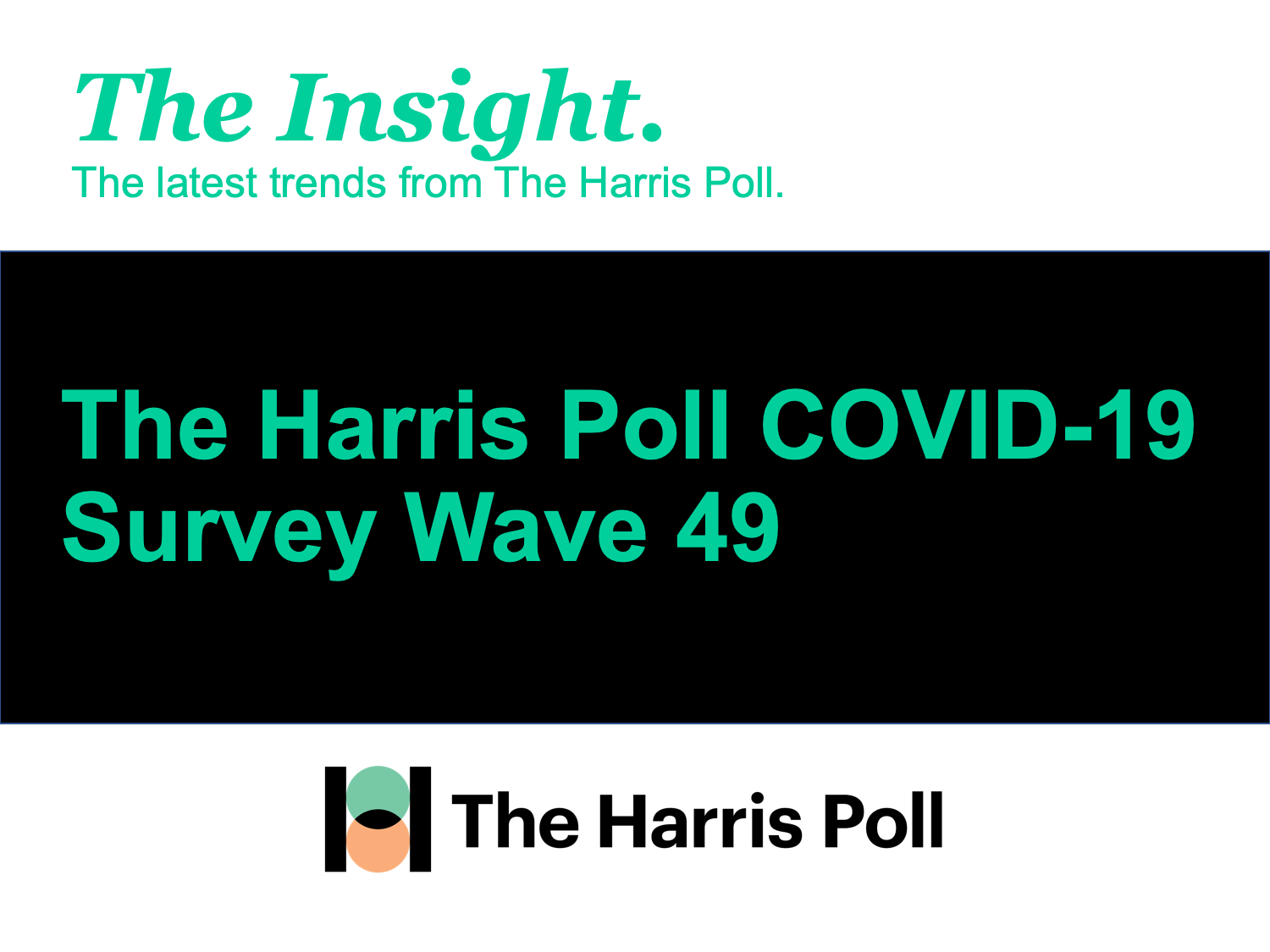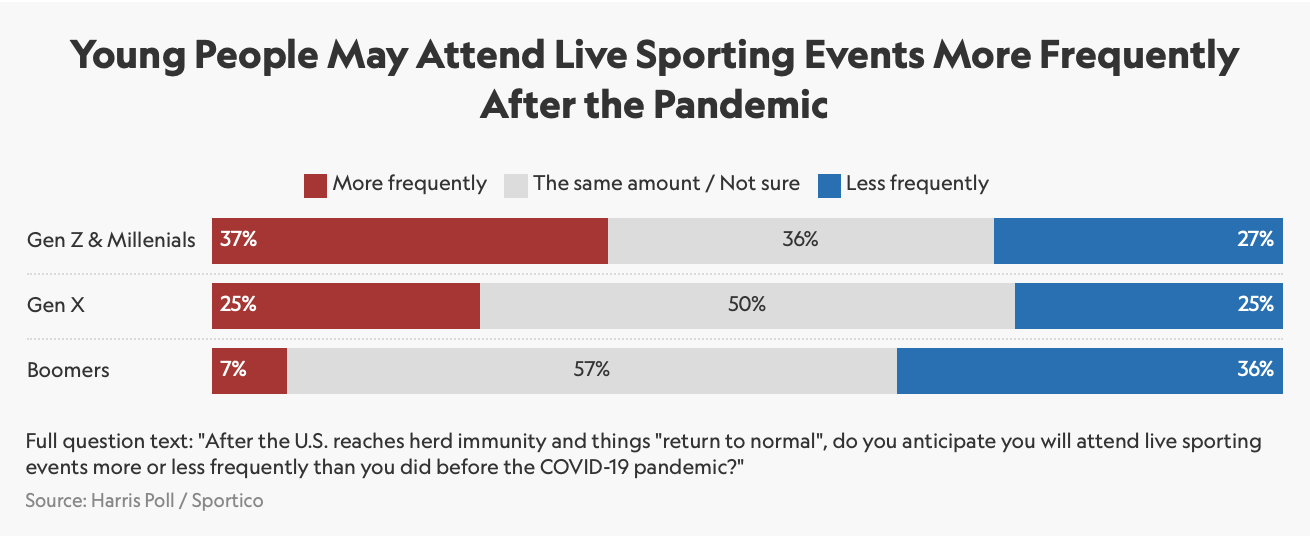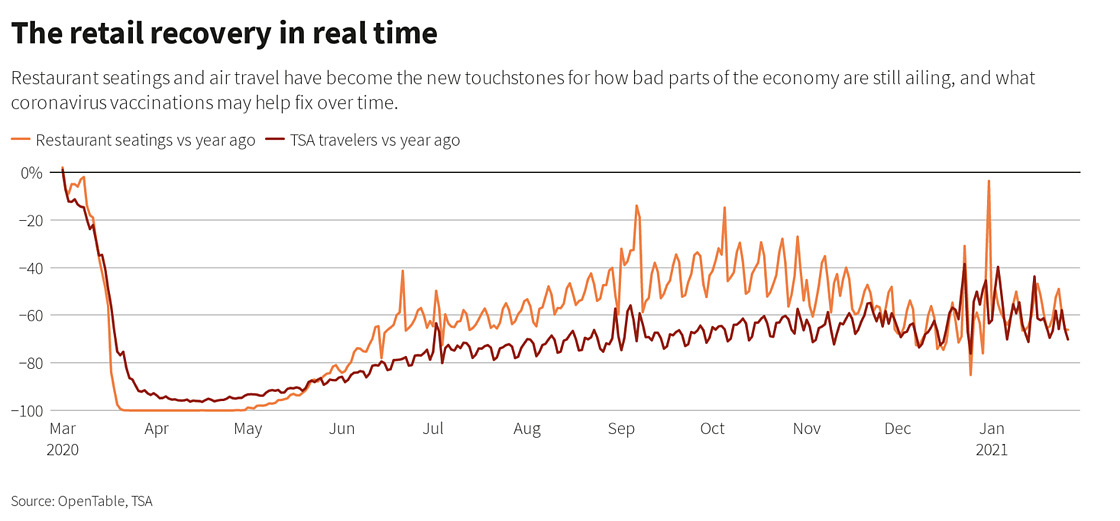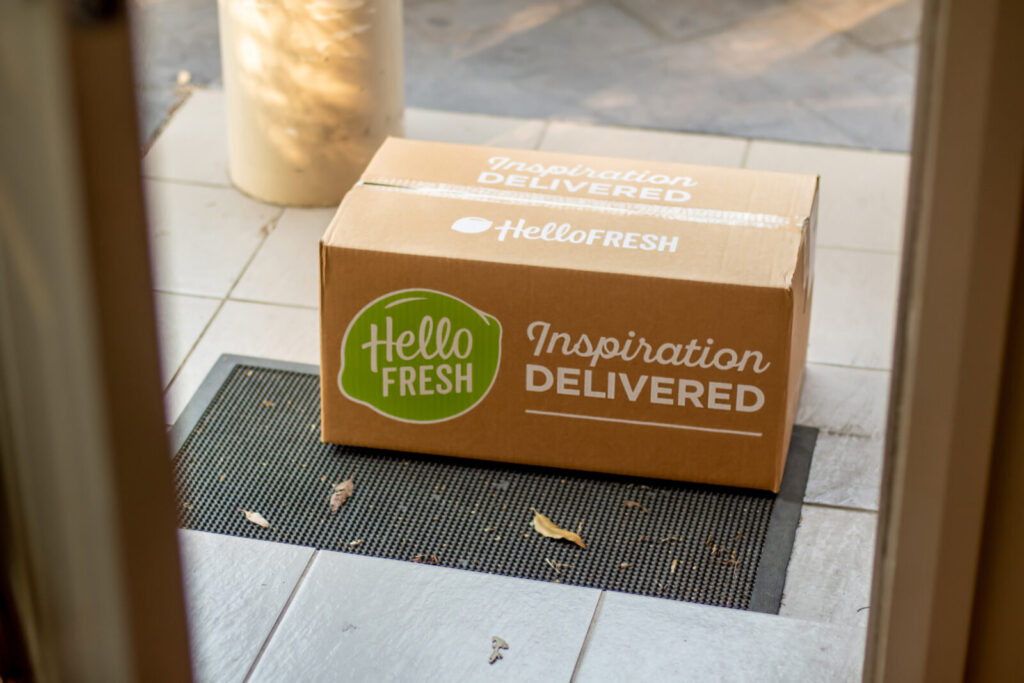Brief • 4 min Read

In The Harris Poll COVID-19 Tracker (Week 49) fielded January 29th to 31st, 2021 among 2,025 U.S. adults, we look at how Millennials are fueling the retail investment boom, how sports fans plan to wait for herd immunity before returning to stadiums, if double-masking will become the new masking, how the economy will not fully recover until we reach herd immunity.
As a public service, our team has curated key insights to help leaders navigate COVID-19. Full survey results, tables, and weekly summaries can be accessed for free at The Harris Poll COVID-19 Portal. We will continue to actively field on a regular cadence to track the shifts in sentiment and behaviors as the news and guidelines evolve.
Millennials Are Driving the Retail Investment Revolution
After last week’s events surrounding retail investors making waves in the stock market with ‘meme’ stocks like GameStop through investing apps like Robinhood, the Harris Poll looked the role Millennials are playing in the recent boom of retail investors:
- Millennials are fueling the rise of pandemic trading: Since the start of the pandemic, (61%) of Millennials have put more money into the stock market (vs 45% of Gen X and 19% of Boomers). And they are more than twice as likely as Gen X to own cryptocurrency (40% vs 19% of Gen X and 8% of Boomers).
- And they see a shift in power – and a boom – for retail investors: (43%) of Millennials say last week’s stock market events surrounding GameStop and Reddit represent a shift in the power of the stock market to retail investors (vs 30% of Gen X and 21% of Boomers). And (83%) of Millennial investors said they use a mobile app to buy or trade stocks, bonds, ETFs, or other securities.
- Social media is the Millennial’s Bloomberg Terminal: (28%) of Millennial investors say that recommendations from social media like Twitter and Reddit influence their decision to buy stock in a company (vs 15% of Gen X and only 3% of Boomers). Millennials are also much more likely than older generations to buy the stocks of companies for which they are a user (38% vs 25% of Gen X and 29% of Boomers).
- Millennials recognize the benefits of retail investors: half (49%) of Millennials say the benefits of retail investing outweigh the risks (vs 43% of Gen X and 30% of Boomers). And most (80%) Millennials said that commission-free trading apps have a positive impact on the economy.
Takeaway: Commission-free trading apps have “democratized” the once out-of-reach stock market for an entire generation as they reach the financial stage of their life when many have enough savings to focus on investing. As with many aspects of their lives – from travel lodging to dating to dog walking – Millennials will do it their way…on an app.
Fans Await Herd Immunity Amid Skepticism for 2021: Sportico-Harris Poll
The U.S. surpassed 33 million COVID-19 doses administered this week, but our new survey in partnership with Sportico indicates that vaccination alone may not be sufficient for Americans to feel comfortable among large crowds. What is the future of full-capacity crowds at sporting events? We look at what fans are thinking:
- Most Americans will be wary of live sporting events until after we reach herd immunity: Two-thirds of Americans will not be comfortable in a full-capacity indoor arena (67%) or outdoor stadium (64%) for a sporting event until they’ve had a COVID-19 vaccine, and the majority will still not be comfortable until the country reaches herd immunity.
- There is public support for vaccine requirements: Three-fifths (62%) of people polled agree fans should be required to provide proof of a COVID-19 vaccination in order to attend a sporting event, including (70%) of regular sports attendees. Even more Americans (67%) and frequent sports attendees (72%) agree that players and coaches should be required to receive a vaccine.
- Regular attendees are eager to get back to stadiums: While the general public is almost exactly split over whether they plan to attend live sporting events more or less frequently after the pandemic than before, (44%) of those who attended at least five events in 2019 say they are more likely to attend, versus only (26%) who say they are less likely. A similar mindset is observed among young people.

Takeaway: As sports venues look to get fans back into seats, they should be pleased to know that (78%) of those who attended at least five events in 2019 are likely to get the COVID-19 vaccine, versus just (68%) of the general public.
From Backlash to Double-Mask
With news of new COVID-19 variants, public health officials are suggesting double masking as a way to increase the level of protection. At face value, double-masking might seem like a tall order ask of the public given America’s contentious relationship with masks; but our new data shows some are embracing the new trend, possibly signaling a softening of the mask backlash.
- The case for double layer protection: According to recent studies, a single-layer mask provides somewhere in the 50% to 60% range of effectiveness in blocking aerosols. But put a surgical mask under a cloth mask and you get “over 91% removal efficiency for particles,” said Joseph Allen, an associate professor at the Harvard T.H. Chan School of Public Health in a recent interview.
- Students, Gen Z and Millennials are leading the double masking trend: (60%) of students, (44%) of Gen Z and (51%) of Millennials say they are double masking always/most of the time, vs only (36%) Gen X, (30%) Boomers and (26%) Silent.
- Black and Hispanics who have been disproportionately affected by COVID are significantly more likely to be double masking right now; official data from the CDC shows Black and Hispanics are disproportionately hospitalized and dying from the virus. Today, (58%) of Black and (50%) of Hispanics say they are double masking always/most of the time, vs only (36%) White and (35%) Asians.
- Does this mean a softening of the mask backlash? Maybe… Back in July, a third (33%) of Americans told us that mandatory masks are a threat to our rights and freedoms, a sentiment shared across demographics including (45%) Republicans, (45%) Hispanics, (33%) of both White and Black. Today (75%) say they support a national mandate making it mandatory to wear masks in public to fight the coronavirus pandemic, according to the Harvard Harris Poll.
Takeaway: Messaging on COVID mitigation has been confusing and frustrating and Americans seeking clarity, trust and consistency from leaders in Washington to their local businesses on how to stay safe in the “new normal.” This is needed now more than ever as we enter a new and fragile era of COVID with the vaccine roll out and the arrival of new virus variants.
With Vaccinations on the Rise, U.S. Economy Remains in the Waiting Room: Reuters
Last week, we contributed our polling data alongside OpenTable, Yelp, and others to a Reuters article modeling a comprehensive portrait of consumers in a ‘wait and see’ mode on resuming activities, despite progress on nearly all aspects of the vaccine front.
- In a recent Harris Poll, (30%) of consumers said they would not “feel safe” eating indoors at a restaurant until “the country reaches herd immunity” – the point at which the virus cannot spread effectively because so many people are immune. One-fifth (18%) say they’ll feel comfortable after the second dose of their vaccine kicks in, while only (26%) are comfortable doing so now.
- And it’s not just dining out for which consumers are waiting until herd immunity to resume: (40%) don’t feel comfortable to fly on an airplane and (23%) will even wait until herd immunity to visit friends and family without a mask (while 24% will visit friends and family maskless after they have all been vaccinated, 16% after they personally have been vaccinated, and 22% are comfortable doing so now).
- Daily data on restaurant seatings from OpenTable here and on airline passengers screened by the Transportation Security Administration have leveled off recently at about 40% below year-ago levels.

Takeaway: However, it’s not just the U.S. we have to be concerned about in order to return our economy to normal: The Wall Street Journal puts the global economic impact of the pandemic into perspective: “The U.S. and a few other countries could wind up enjoying many benefits of herd immunity but still be unable to fully mend their economies because they are waiting on other places to catch up. With borders shut globally, some businesses even in vaccinated countries would have to rely on domestic demand.”
60% of Americans Believe Colleges Should Drop the SAT: Yahoo Finance-Harris Poll
Following the news that The College Board is eliminating the SAT essay and subject-specific tests, Yahoo Finance, together with The Harris Poll, asked 1,000 readers their thoughts on standardized testing and found (60%) agree that U.S. colleges and universities should stop requiring standardized test scores for applicants altogether. Here’s why:
- Affluent bias: (51%) of Americans polled agree that standardized tests are inherently biased in favor of affluent students.
- Racial bias: most African and Hispanic Americans (61% and 57%, respectively) believe that standardized tests are inherently biased in favor of white and Asian Americans (vs only 36% of white Americans and 43% of Asian Americans).
- Many Americans (62%) agree that high school grades are a better measure of a student’s college success than standardized test scores. In addition, (68%) of students, and (73%) of young Americans between the ages of 18-34 are even more likely to support using grades over test scores.
- Many Americans believe a more balanced approach must be found when it comes to measuring college preparedness. Aside from high school grades, which polled at (58%), interviews at (49%), teacher recommendations at (47%), and academic/extracurricular awards at (41%), were the top metrics Americans said should evaluate students instead of standardized test scores.
Takeaway: College admissions, like many aspects of American society exposed for inequities during COVID, is overdue for a makeover. Eliminating the SAT essay and subject tests might help simplify testing but bigger changes are needed to solve for deep structural issues like bias.
Subscribe for more Insights
Subscribe to our newsletter for the latest trends in business, politics, culture, and more.
Download the Data
This survey was conducted online within the U.S. by The Harris Poll from January 29 to 31, 2021 among a nationally representative sample of 2,025 US. adults.
Download
Subscribe for more Insights
Subscribe to our newsletter for the latest trends in business, politics, culture, and more.
Download the Data
This survey was conducted online within the U.S. by The Harris Poll from January 29 to 31, 2021 among a nationally representative sample of 2,025 US. adults.
DownloadRelated Content








